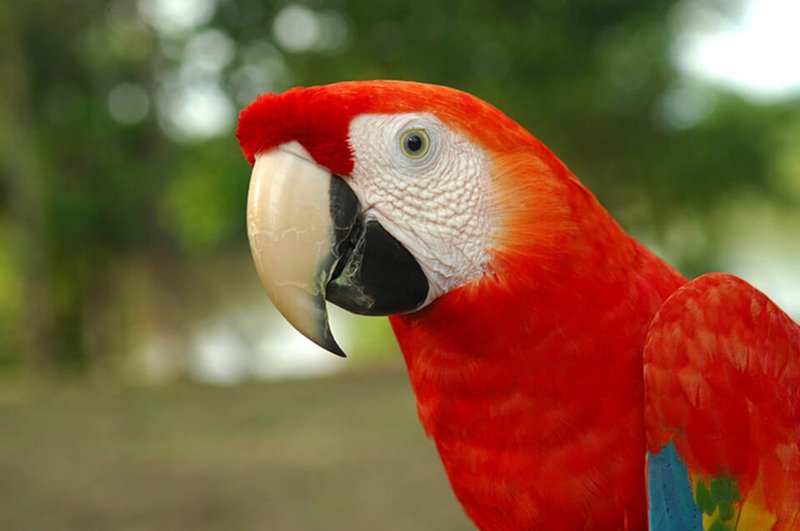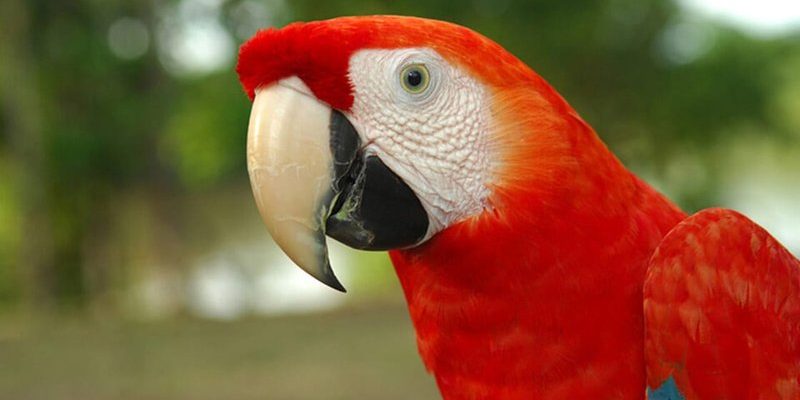
A macaw isn’t just a pet or a wild animal; it’s a fascinating part of our planet’s ecosystem, bursting with character and quirks. In this article, we’ll dive into ten fascinating facts about macaws that will make you appreciate these stunning creatures even more—whether you’re considering adopting one or just want to impress your friends with your bird trivia!
1. Macaws Are Remarkably Colorful
When you think of a macaw, the first thing that usually comes to mind is color. These birds boast vivid plumage that includes shades of blue, green, red, and yellow. Each type of macaw has its own unique palette. For example:
- The Blue-and-yellow Macaw shows off a bright blue back and a beautiful yellow belly.
- The Scarlet Macaw, with its mesmerizing red, yellow, and blue feathers, is often considered the ultimate showstopper in the bird world.
But it’s not just for looks. Their bright colors help them blend into the lush, vibrant rainforest canopies where they live. Here’s the thing: the colors can also play a role in communication and mating. A vibrant partner indicates good health and genetic fitness, making them more attractive to potential mates.
2. Macaws Are Highly Intelligent
Honestly, macaws are more than just pretty feathers. They’re some of the smartest birds around! They have the ability to solve problems, use tools, and even mimic human speech. This intelligence ranks them among the most intelligent avian species.
For example, a macaw can learn to say several words and phrases, often mimicking the tone and rhythm of their human companions. One minute, they could be squawking, “Hello!” and the next, they’re imitating a laughing child or a ringing phone. Isn’t that impressive?
This intelligence means they need a lot of mental stimulation. Boredom can lead to behavioral issues, so if you’re thinking about having a macaw as a pet, be prepared to keep them entertained!
3. They Have a Long Lifespan
You might be wondering how long a macaw can live. Prepare to be amazed: macaws can live for 50 years or more in captivity!
This long lifespan means that owning a macaw is a serious commitment. It’s not like adopting a puppy that will grow up in a few years; instead, you’re inviting a feathered family member into your life for decades. In fact, some macaws have been known to live into their 80s with the right care.
This longevity also requires planning for their health and well-being over the years. Regular vet check-ups and a proper diet are essential to keeping them happy and healthy.
4. Their Diet Is Quite Diverse
Here’s the thing: macaws are omnivores with a taste for a wide variety of foods. In the wild, their diet typically includes fruits, nuts, seeds, and even flowers.
In captivity, it’s crucial to mimic this natural diet to ensure they get all the nutrients they need. A balanced diet for pet macaws often consists of:
- Fresh fruits (like apples and berries)
- Nuts (almonds and walnuts are favorites)
- Pellet-based food (specifically designed for macaws)
Avoid feeding them certain foods like chocolate or avocado, which can be toxic! Always consult with a vet familiar with avian care to understand the best diet for your feathered friend.
5. They Are Social Creatures
Macaws are known for being incredibly social birds. In the wild, they live in pairs or small flocks, often forming strong bonds with other macaws. You might think of them as the “party animals” of the bird kingdom!
Their social nature means they require a lot of interaction and companionship. If you’re thinking about getting one, plan on spending plenty of quality time with them. They thrive on play and social interaction, so consider getting a second macaw to keep your first one company.
If you’re not careful to provide enough social engagement, macaws can become lonely and develop behavioral issues like feather plucking. It’s essential to ensure they feel loved and connected.
6. Macaws Are Great Fliers
When you see a macaw soaring through the sky, it’s hard not to be awestruck. These birds are magnificent fliers and can cover large distances with ease. Their strong wings allow them to reach altitudes of up to 1,000 feet in the wild.
In fact, they can fly at speeds of up to 35 miles per hour! This ability serves multiple purposes, from foraging for food to escaping predators.
Fun fact: when flying, macaws need to flap their wings quite frequently to stay airborne. So, it’s not all gliding; they work hard to show off those flashy colors in the sky!
7. They Have Unique Personalities
Just like humans, each macaw has its own distinct personality. Some are more laid-back, while others might be playful and mischievous. You might find one macaw snuggling up next to you on the couch, while another is busy exploring every nook and cranny of your home.
Here’s the thing: understanding these personality traits can help you create a harmonious environment for your macaw. If you’re considering adopting one, it’s essential to spend time with them beforehand to find a bird that matches your lifestyle.
Their strong personalities also reflect in their playful behaviors. They love to chew on toys and solve puzzles, so providing them with stimulating activities is key to a happy macaw.
8. Macaws Are Endangered Species
It’s crucial to acknowledge that many macaw species are facing threats in the wild. Deforestation, habitat loss, and poaching have led to significant declines in their populations. Some species, like the Spix’s macaw, are critically endangered and possibly extinct in the wild.
Conservation efforts are underway to protect these beautiful birds and their habitats. Organizations are working to restore their numbers through breeding programs and habitat preservation.
By supporting conservation efforts, you can help ensure that future generations can enjoy the beauty of macaws in the wild.
9. They Can Be Quite Loud
If you’ve ever heard a macaw squawking, you know they can be pretty loud! Their calls can reach up to 100 decibels, which is comparable to a rock concert. While their vocalizations can be entertaining, it’s something to consider if you live in an apartment or close quarters.
Macaws use their vocalizations to communicate with each other, often calling out to their flock members. These loud calls serve as a way to stay connected in the dense forest.
So, if you decide to bring a macaw into your home, be prepared for some lively conversations!
10. They Bond Closely with Their Owners
One of the most beautiful aspects of owning a macaw is the bond you can form with them. They’re known for being affectionate and loving toward their human companions.
Macaws often show their affection by preening, snuggling, and even cuddling with you. Spending quality time with your macaw can strengthen this bond, making them feel safe and secure in your presence.
Let me explain: if you treat your macaw with love and patience, they can become a lifelong friend that offers companionship and joy.
As you can see, macaws are fascinating creatures with rich personalities and incredible traits. From their vibrant colors to their unique social behaviors, these birds offer a glimpse into a world of beauty and intelligence. Whether you’re an experienced bird owner or just an admirer, understanding these facts can deepen your appreciation for these amazing animals. So next time you see a macaw, you might just look at it with a new sense of wonder!

